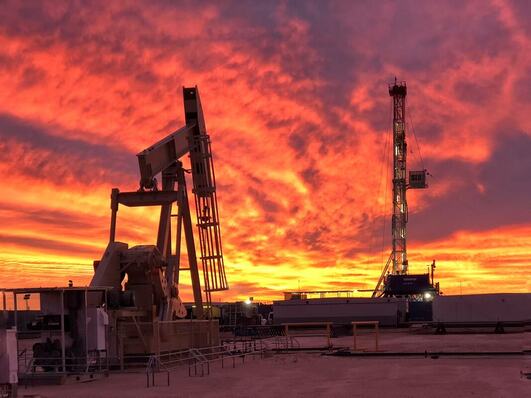
Changes to rules for new gas projects within Safeguard Mechanism reforms raise concerns
29 March 2023
The Federal Government’s ambition to achieve a 43% emission reduction target by 2030 sets a clear goal that requires substantial and sustained reductions in greenhouse gas emissions across the economy.
To support this target, reforms to the Safeguard Mechanism, originally introduced by the previous Coalition Government in 2016, will place a declining cap on emissions for 215 companies, many of whom are large manufacturers and industrial companies.
On face-value, this seems like a logical approach to tackle Australia’s largest emission producers. However, many of these companies are hard to abate as the technologies required do not exist.
In South Australia, the companies impacted by the Safeguard Mechanism include BHP, Santos, Nyrstar, Adbri, GFG Whyalla Steelworks, Orora, Kimberley-Clark and Australian Gas Networks. Key to Australia’s sovereign capability, they are significant contributors to the State economy, producing critical resources for a clean energy future, and collectively employing thousands of South Australians in well paid jobs.
These companies – and the South Australian resources sector in general – are committed to Net Zero and have actively been working to lower emissions for many years. Industry has consistently been calling for clear and concise climate change policy at a national level.
While some of the sector’s previous concerns regarding the Safeguard Mechanism reforms are being addressed, including the need to consider Carbon Border Adjustment Mechanisms (CBAM), greater flexibility in determining baselines and funding assistance for manufacturers with inputs into clean technology, there are still aspects of the reforms that are problematic.
Changes to rules for new gas projects are of particular concern.
This weeks announcements, as part of a last-minute deal between the Albanese Government and the Greens, will force new gas projects to be Net Zero from day one. Rather than helping Australia achieve Net Zero targets, this will ultimately make climate change targets harder and more costly to meet.
New gas supply is needed to support our climate change objectives, avoid future energy shortfalls, and to put downward pressure on prices.
Australians are already facing escalating power prices due to the disorderly energy transition taking place across the country. South Australians know full well the impacts of energy insecurity and resulting blackouts.
Rather than making it more difficult for new gas supply, we need to be producing more gas to meet current and forecast energy demands, ensure energy security and support decarbonisation initiatives across the economy. All calls which are echoed by the Australian Competition and Consumer Commission and the Australian Energy Market Operator.
South Australia continues to lead the transition to renewables and I applaud the South Australian Government for maintaining policy settings that support gas development in our State.
To rapidly decarbonise and collectively meet Net Zero ambitions, all technologies need to be available to our highest emitters to support their actions to reduce emissions.
Removing options will only hamper decarbonisation efforts and risk sovereign capability.
Rebecca Knol
CEO, South Australian Chamber of Mines & Energy
29 March 2023
The Federal Government’s ambition to achieve a 43% emission reduction target by 2030 sets a clear goal that requires substantial and sustained reductions in greenhouse gas emissions across the economy.
To support this target, reforms to the Safeguard Mechanism, originally introduced by the previous Coalition Government in 2016, will place a declining cap on emissions for 215 companies, many of whom are large manufacturers and industrial companies.
On face-value, this seems like a logical approach to tackle Australia’s largest emission producers. However, many of these companies are hard to abate as the technologies required do not exist.
In South Australia, the companies impacted by the Safeguard Mechanism include BHP, Santos, Nyrstar, Adbri, GFG Whyalla Steelworks, Orora, Kimberley-Clark and Australian Gas Networks. Key to Australia’s sovereign capability, they are significant contributors to the State economy, producing critical resources for a clean energy future, and collectively employing thousands of South Australians in well paid jobs.
These companies – and the South Australian resources sector in general – are committed to Net Zero and have actively been working to lower emissions for many years. Industry has consistently been calling for clear and concise climate change policy at a national level.
While some of the sector’s previous concerns regarding the Safeguard Mechanism reforms are being addressed, including the need to consider Carbon Border Adjustment Mechanisms (CBAM), greater flexibility in determining baselines and funding assistance for manufacturers with inputs into clean technology, there are still aspects of the reforms that are problematic.
Changes to rules for new gas projects are of particular concern.
This weeks announcements, as part of a last-minute deal between the Albanese Government and the Greens, will force new gas projects to be Net Zero from day one. Rather than helping Australia achieve Net Zero targets, this will ultimately make climate change targets harder and more costly to meet.
New gas supply is needed to support our climate change objectives, avoid future energy shortfalls, and to put downward pressure on prices.
Australians are already facing escalating power prices due to the disorderly energy transition taking place across the country. South Australians know full well the impacts of energy insecurity and resulting blackouts.
Rather than making it more difficult for new gas supply, we need to be producing more gas to meet current and forecast energy demands, ensure energy security and support decarbonisation initiatives across the economy. All calls which are echoed by the Australian Competition and Consumer Commission and the Australian Energy Market Operator.
South Australia continues to lead the transition to renewables and I applaud the South Australian Government for maintaining policy settings that support gas development in our State.
To rapidly decarbonise and collectively meet Net Zero ambitions, all technologies need to be available to our highest emitters to support their actions to reduce emissions.
Removing options will only hamper decarbonisation efforts and risk sovereign capability.
Rebecca Knol
CEO, South Australian Chamber of Mines & Energy
